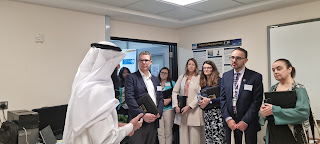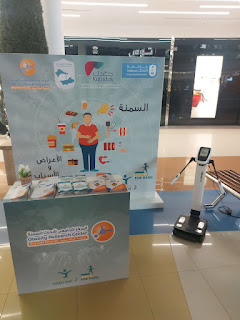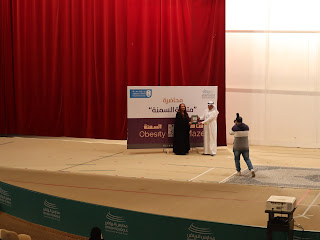A medical team at King Saud University studies protein analysis of thyroid tissue
A medical team at King Saud University studies protein analysis of thyroid tissue
Statistically significant differences between tissues extracted from enlarged and normal glands

A research study conducted by a medical team in the Proteins Research Unit at the University Center for Obesity Research at the College of Medicine at King Saud University concluded that there are statistically significant differences between tissues extracted from enlarged glands and tissues extracted from normal glands. Bioinformatics analysis using path analysis also identified the presence of an abnormality In regulating signaling pathways associated with ERK1/2, glutathione peroxidase and other pathways associated with endocrine system disorders and tumors.
Reaching these scientific results after analyzing the results of assays to determine changes in protein expression is a complement to previous studies in this field that seek to understand the most accurate causes of goiter, and how to use this information to come up with innovative methods of diagnosis and treatment.
This study aimed to identify and describe changes in thyroid tissue proteins in patients with benign goiter using the proteomic analysis method, especially since the pathological causes and molecular changes behind the development of benign goiter are still unclear.
Samples of thyroid tissue from patients with benign goiter were studied and compared with normal samples, and comprehensive proteomic analysis of thyroid tissue was performed using two-dimensional difference gel electrophoresis followed by mass spectrometry to identify proteins with matrix-assisted laser desorption ionization imaging (MALDI- TOF-MS).




Comments
Post a Comment